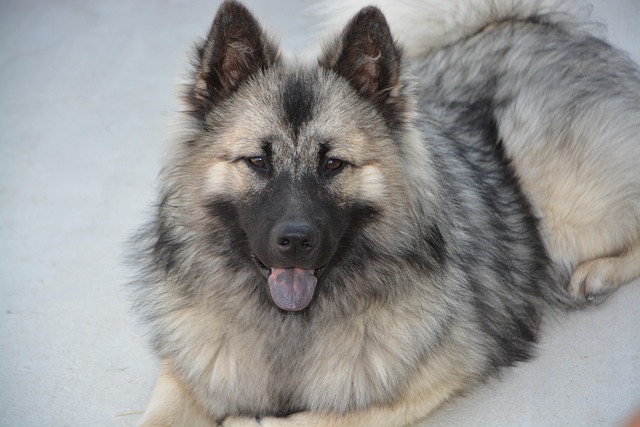
How do i train my dog to be obedient?
Watching your dog dart across the park ignoring your calls isn’t just frustrating—it can put them at risk near busy streets or public spaces.
On every sunny or breezy day, taking your dog for a walk is a joyful time shared by many pet owners and their furry children. However, many owners find that their dogs seem to be curious about every corner of the road while walking their dogs, always sniffing here and there, occasionally stopping and immersing themselves in their own "olfactory world". This raises questions: should we stop dogs from sniffing around while walking their dogs? To answer this question, we need to have a deep understanding of dogs' behavioral characteristics and their sensory world.
Dogs' sense of smell is one of their most powerful senses, far surpassing that of humans. According to scientific research, dogs have dozens of times more olfactory cells than humans, and they can distinguish millions of different odors. For dogs, the world is filled with various scent information, each scent like a unique "story" waiting for them to interpret. They collect information about the surrounding environment through smell and determine whether there are traces of other animals here, whether they are enemies or friends; Understand whether there is any danger around, such as whether there are odor marks left by unfamiliar or aggressive animals.
When dogs smell everywhere while strolling, it is actually their social activity. The way dogs communicate with each other is very different from humans. They convey information through urine, feces, and odors secreted by their body glands, such as age, gender, health status, emotional state, and so on. A dog smelling the scent left by other dogs on the roadside is like seeing social updates posted by others. Through these scents, they can learn about each other's "life details" and achieve a unique "social interaction". To some extent, allowing dogs to smell around is giving them the opportunity to integrate into the "dog social circle" and meet their social needs.

From the perspective of dogs' psychological needs, sniffing around is also a way for them to explore the world. Every new scent is a novel experience for them, just like children are curious about new toys. This exploratory behavior can stimulate dogs' brains, provide them with rich sensory stimulation, and help them understand the world, learn, and grow. If dogs are stopped from sniffing around for a long time, it may deprive them of the pleasure of exploring the world, affect their mental health, and even lead to emotional problems such as anxiety and depression.
However, sniffing around while walking a dog is not entirely without drawbacks. Sometimes, dogs may smell unhygienic or even harmful things, such as roadside garbage, contaminated water sources, or toxic plants. If dogs accidentally lick or come into contact with these items while sniffing, it may pose a threat to their health. In addition, in some public places, dogs sniffing around for a long time may affect the passage of others and cause their dissatisfaction.
So, should we stop dogs from sniffing around while walking their dogs? The answer is not an absolute 'yes' or' no ', but needs to be balanced and guided according to specific circumstances. When a dog smells something obviously harmful, such as near a garbage dump or on grass sprayed with pesticides, the owner should stop it in a timely manner and guide the dog away from these dangerous areas. By calling the dog's name, giving commands in a gentle but firm tone, and giving some small snacks as a reward, the dog can understand the benefits of staying away from these dangerous items.
On the premise of not affecting the safety of others and the dog itself, we may as well give the dog more time to smell the world around it. But in order to avoid the dog staying for a long time affecting the walking progress, owners can use some training methods to control the dog's behavior. For example, after smelling the dog for a while, give the command to "go" and gently pull the leash to guide the dog to continue moving forward. If the dog follows instructions, give timely praise and rewards, and through repeated training, teach the dog to find a balance between sniffing and moving forward.
It is a natural and normal behavior for dogs to smell around while walking their dogs, which contains their social, exploratory, and psychological needs. As dog owners, we need to understand their behavioral motivations, respect their nature while ensuring their safety and not affecting others, and give them enough space to explore and feel the world. Every walk is an opportunity for us to strengthen our relationship with our dog. Through proper guidance and interaction, we can allow our dog to enjoy free exploration while also becoming a "good baby" for civilized travel, making this time of companionship between humans and pets more beautiful and unforgettable.

Watching your dog dart across the park ignoring your calls isn’t just frustrating—it can put them at risk near busy streets or public spaces.

New puppy owners often find themselves rushing to clean up accidents before they set in, and that’s where puppy pad training becomes a game-changer.

If you've noticed your dog's waistline disappearing and your veterinarian has mentioned those few extra pounds, your first instinct might be to simply reduce the amount of food in their bowl.

Training a dog to use a designated spot indoors isn’t as daunting as many new owners fear, but it does take consistency and an understanding of your pet’s needs.

That moment of dread on a walk is all too familiar for many new dog owners. You see another dog approaching down the sidewalk of your neighborhood

If the sight of another dog on your neighborhood walk makes your heart sink as your own dog erupts into a frenzy of barking and lunging, you're not alone.